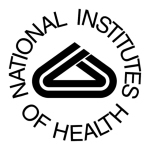by
Astrid Fiano, DOTmed News Writer | February 03, 2010

Some support
for dose tracking
An article in the most recent issue of the Journal of the American College of Radiology reports on a new National Institutes of Health measure to track radiation doses in patient electronic medical records.
The article is an opinion piece by Ronald D. Neumann, M.D., and David A. Bluemke, M.D., Ph.D. entitled "Tracking Radiation Exposure From Diagnostic Imaging Devices at the NIH." Dr. Bluemke is Director of the National Institutes of Health Clinical Center Radiology and Imaging Sciences. Dr. Neumann is chief of nuclear medicine and deputy associate director for Imaging Sciences at the Clinical Center. The piece notes the recent concern over risks of exposure to diagnostic medical imaging tests. (See, DM 10874, 11413 on other concerns regarding radiation dosage). The piece points out that the National Council on Radiation Protection and Measurements has recently reported Americans have received seven times more medical test radiation exposure in 2006 than in the 1980s. Computed tomography (CT) and cardiac nuclear medicine account for a significant part of such exposure.
The risk of exposure to low doses of medical radiation is not currently known, however, very high radiation doses can potentially cause cancer. According to Doctors Neumann and Bluemke, unlike other medications and treatment, diagnostic imaging test radiation doses are generally unavailable or inaccessible to a patient's medical record, and are generally not collected by radiology information systems in hospitals, and not forwarded by imaging devices that communicate with such systems. The American College of Radiology has recommended this type of data collection.
NIH's Radiology and Imaging Sciences clinical center will now routinely record radiation dose exposure in a patient's hospital-based electronic medical record, for those clinical research patients at the NIH Clinical Center exposed to radiation during some imaging tests. The CT and positron emission tomography (PET/CT) equipment purchased by the Clinical Center will record the radiation dose exposure.
The authors say being able to keep track of an individual's exposure to radiation through routine imaging tests is needed for future research in determining if medical radiation exposures are a health risk. Collecting this type of data in the United States over several years will ultimately be necessary. Patients should also be able to store data on their own radiation dose exposures in their personal medical records. The authors say the Obama administration's proposals regarding EMRs might assist in later studies.
Back to HCB News
